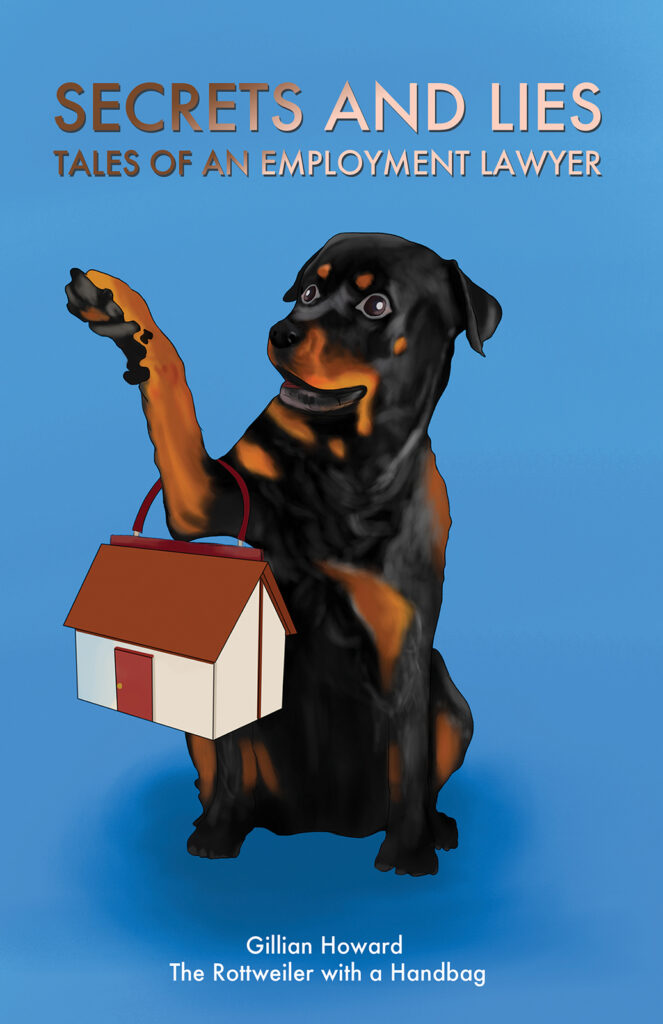In her career in law, spanning over 40 years, Gillian Howard has fearlessly taken on some of the world’s largest companies in epic ‘David & Goliath’ style legal battles; she has won significant settlements for her clients, including a single payout of $70 million and numerous seven-figure payments. One of Gillian’s cases was made into a BBC docu-drama (with Sarah Lancashire cast in her role). Gillian has now published a book sharing some of her most fascinating cases (Secrets & Lie, Tales of An Employment Lawyer).
Gillian joins us to share the motivation behind her storied career and expert comment on the new UK Flexible Working Act.
“I never could stand bullying of any kind.”
Gillian’s lifelong crusade against bullies has taken her from the playground to the courtroom:
“When I was growing up, my father, a doctor, always stood up for his patients and anyone who needed help. So, I was brought up in that environment. Not to make judgments about people, to be kind to everyone, and not judge and support the underdog. My father taught me to stand up to bullies and told me that the other side of a bully is a coward. I stood up to playground bullies then and have continued to stand up to bullies in my law career.”
“After University, I decided on a career in employment law, and as anti-discrimination legislation was passed, I decided to specialize in this area of employment law.”
Gillian specializes in all aspects of employment law – but fighting discrimination and bullying are her main areas of Practice. She also defends doctors and dentists before their Regulatory Bodies, the General Medical Council, and the General Dental Council.
“At the heart of what I do is my passion, commitment & determination to never give up.”
“My real passion is fighting for women who have been sexually discriminated against or sexually harassed at work and anyone who has been the subject of discrimination, especially homophobic or disability discrimination. I also enjoy acting in contractual disputes, such as bonus or pay disputes.”
What’s in a name?
Gillian’s fearsome reputation has earned her a nickname that she’s proud of and often carries some weight against the opposition:
“Many years ago, a client thanked me at the successful conclusion of her case and said, “You do deserve your name.” Intrigued, I asked what that was, and she said, “The Rottweiler with a handbag.” A Consultant Physician, Dr. Rob McNally, who had referred this client, had told her that was the name he had given me. I love it and am extremely happy to have it. It sometimes makes the other side quake in their shoes before meeting me. I have even trademarked it to ensure that no one else uses it. I learned early on in my career to bare my Rottweiler teeth and snap or even threaten to ‘bite’ the opposition where it hurts —more often, this was the employer or their lawyers, and it was often just enough to make them roll over and give in.”
“Hybrid working since Covid presents benefits & problems.”
“Whilst home working can work for many people, I would say, lawyers, for the most part, need to work in the office or chambers, and certainly newly trained lawyers or those in training need to be at work -not working from home. I think it is essential that young and newly qualified lawyers work in an office or Chambers if they are baby barristers so they can see others at work. You only learn your trade by watching how others do it.”
The Employment Relations Flexible Working Act 2023 (UK)
There are several changes from the original proposal and to the current flexible working regime – Gillian shares some key points to be aware of:
“In terms of what the new act will do, it changes the option for employees to make two (instead of one) flexible working requests in any 12 months (that’s men AND women). Employers must deal with requests within two months of receipt of a written request (if no extension is agreed). Employers will not be allowed to refuse a request until they have consulted with the employee, but consultation doesn’t, of course, mean agreement. Employees will no longer in their application need to advise what effect the employee thinks agreeing to the request will have on the employer’s business.”
In terms of what it doesn’t do:
“The original proposal was going to make the right to request flexible working from day 1 of employment – that is NOT in the bill, and employees will still need to have 26 weeks service before they are entitled to make a request. The government has indicated that it will make it a day one right through regulations in the future – but no regulations have been drafted yet.”
“It doesn’t require employers to offer a right of appeal if a flexible working request is rejected -the right of appeal is recommended in the ACAS code of Practice on flexible working -and the act makes no changes to that, so there’s no requirement to allow an appeal in law. However, if the employer does not abide by the ACAS code of Practice, it’s something a tribunal can consider if deciding if an employer acted reasonably.”
“Corporate clients of mine have said this is a damp squib and doesn’t change much.
It’s very disappointing from the trade union and employee point of view. It doesn’t give many more rights to employees. It doesn’t compare to employees’ rights in Europe, such as France and Germany, where they have stronger rights to flexible working.”
Gillian Howard Associates Ltd / Employment Lawyer and Consultant (non-solicitor) with Laytons LLP solicitors.

Gillian’s book is available here: Click Here




































